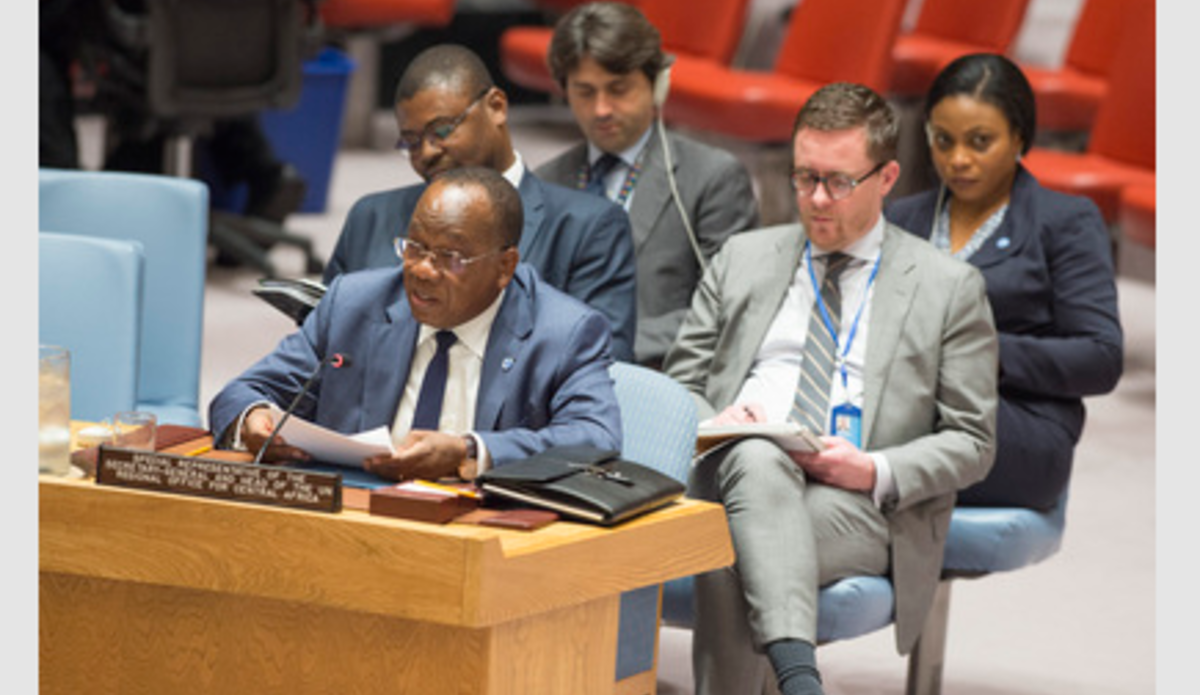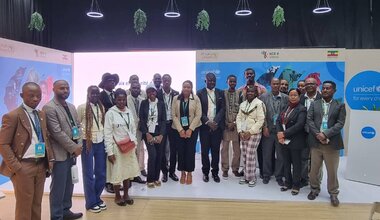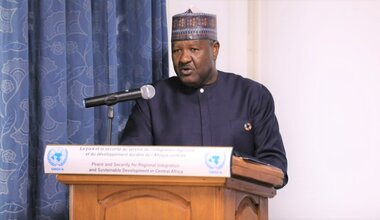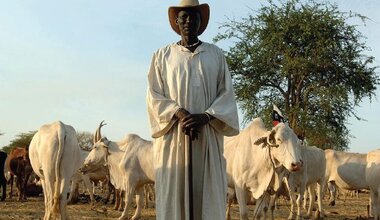Special Representative Warns against Taking Lord’s Resistance Army Lightly, during Briefing to Security Council …
The threat posed by the Lord’s Resistance Army (LRA) to stability in Central Africa’s should not be underestimated, particularly now with Ugandan and South Sudanese troops, as well as United States special forces having disengaged from the African Union Regional Task Force, the Secretary-General’s Special Representative in the subregion warned in the Security Council [yesterday, 13 June]. “I am concerned about the impact of this withdrawal as it will create a security vacuum that may be exploited by the LRA and other armed groups operating in the region,” said François Louncény Fall, Special Representative and Head of the United Nations Regional Office for Central Africa (UNOCA).
Presenting the Secretary-General’s report on the situation in Central Africa and the activities of the United Nations Regional Office for Central Africa, he pointed out that the United Nations Multidimensional Integrated Stabilization Mission in the Central African Republic (MINUSCA) had no mandate to conduct anti‑LRA operations. He went on to emphasize that the Central African Republic’s national security services, which could fill the gap left by the disengaging forces in the long run, still needed training and structural reform. There was need to remain collectively focused on efforts to ensure the LRA’s total eradication, he said. UNOCA would remain engaged, including by reviewing the United Nations regional strategy for addressing the LRA threat and ensuring coordination among various relevant stakeholders.
Turning to the Lake Chad Basin, he said Boko Haram’s activities there had undermined development and exacerbated economic hardship. The group remained a serious threat to stability despite the military progress achieved by the Multinational Joint Task Force. He added that, in accordance with Council resolution 2349 (2017), two UNOCA teams had travelled to Chad and Cameroon in May to assess the impact of Boko Haram’s activities, especially on women and children. With the extremists were still hindering humanitarian access, and thereby further compounding the situation of refugees and internally displaced persons, it was crucial to sustain international support for the subregion and to provide greater assistance, including equipment and logistics, to strengthen the operational effectiveness of the Joint Task Force, he emphasized.
Political tensions persisted elsewhere, mainly in relation to recent or upcoming electoral processes
Political tensions persisted elsewhere, mainly in relation to recent or upcoming electoral processes, he said, adding that they were hampering progress on the rule of law, as well as peace and development while threatening human rights, notably the freedoms of expression and assembly, as political space continued to shrink. However, a national dialogue in Gabon from 29 March to 25 May had produced a series of recommendations on institutional and constitutional reforms, including the transfer of responsibility for announcing electoral results from the interior ministry to the election management body, he reported.
In Cameroon, tensions in the English-speaking regions of the north-west and south-west seemed to be subsiding as a result of Government measures to address grievances, he said. There was also a growing consensus that contentious issues must be addressed through dialogue and other peaceful means. He expressed concern, however, that 24 civilians detained in connection with the crisis in Cameroon’s English-speaking regions — including three leaders of the Anglophone movement — faced trial in a military court for “acts of terrorism” and complicity to perpetrate such acts. They risked the death penalty if found guilty, he warned.
Turning to the situation in Congo, he said the unresolved aftermath of the March 2016 presidential election in that country was a source of growing concern, with humanitarian and human rights ramifications in the Pool region and lingering tensions between the Government and opposition. He said that, having returned from Congo last week, he continue to engage and encourage all stakeholders to promote dialogue as the best way to address sociopolitical challenges while also ensuring humanitarian access to the Pool region.
As for the Central African Republic, he said that following an increase in violence in the south-east, UNOCA would work closely with MINUSCA to support the rapid revitalization of the political process at the heart of the Secretary-General’s proposed Action Plan. More specifically, UNOCA would pursue its engagement with the subregion — through existing regional mechanisms, as well as key individual States — to ensure they continued to play a constructive role in resolving the crisis in that country. Click here to read the full report
 UN
UN





